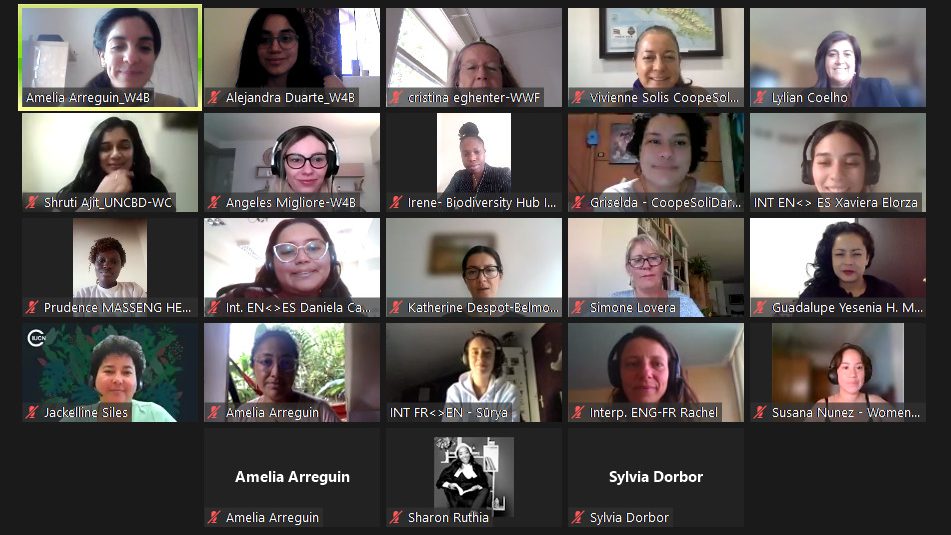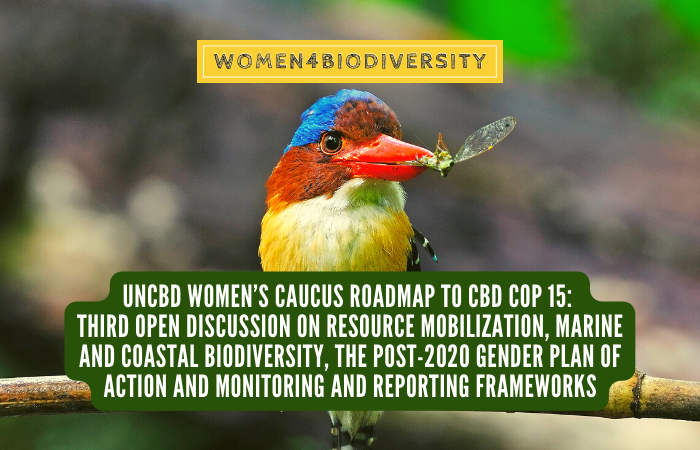The UNCBD Women’s Caucus (WC) recently convened the third of its series of workshops in preparation for the Fifteenth Conference of the Parties to the Convention on Biological Diversity (CBD COP 15). An expert panel within the membership of the WC guided the participants from the basics to the more technical and contentious elements of selected topics that will be negotiated in the upcoming COP.
Simone Lovera from the Global Forest Coalition, enlightened the audience regarding resource mobilization, the global financial mechanisms and the utmost economic transformation needed now to effectively halt the biodiversity crisis. Katherine Despot-Belmonte from the UN Environment Programme – World Conservation Monitoring Centre vividly explained how gender equality could be and has been integrated in the planning, monitoring and reporting process in both national and international biodiversity policies and instruments.
Christina Eghenter from WWF International made a recap and highlighted the key elements surrounding the post-2020 Gender Plan of Action and its implementation to promote a gender-responsive biodiversity framework. And, Vivienne Solis from CoopeSolidar RL spoke loud and clear about how any decision related to marine and coastal biodiversity conservation and sustainable use must take into account the rights, needs and priorities of fisherwomen, woman mollusk gatherers, and all indigenous and local women and girls engaged in this subsector.
After such an energetic panel, the second segment of the workshop was an open round of discussion in different breakout rooms, with each one led by one of the panellists. The discussion on resource mobilization of both monetary and non-monetary resources for the implementation of the post-2020 global biodiversity framework was relatively intense. It was discussed that women and other rights holders who are more dependent on biodiversity should be prioritized as stakeholders in biodiversity conservation, as more often than not, they are the most economically and politically marginalized. Moreover, in an effort to put an end to biodiversity loss, which is caused mainly by human activities, resource mobilization should be geared towards those activities that promote biodiversity conservation while putting a halt to its loss and not vice versa.
To conclude, recommendations were put forth towards strengthening the implementation of the frameworks under the Rio Conventions including the post-2020 global biodiversity framework. There is a call by indigenous women and local organizations to Parties to the CBD to retain Target 22, the stand-alone gender equality target in the framework, and to make holistic provisions for gender considerations throughout the frameworks by applying human rights-based approaches and/or intersectional approaches where applicable.

This workshop is part of UNCBD WC’s virtual workshop series in preparation for CBD’s COP 15. The schedule of the sessions can be found here. Highlights of previous sessions are below:

